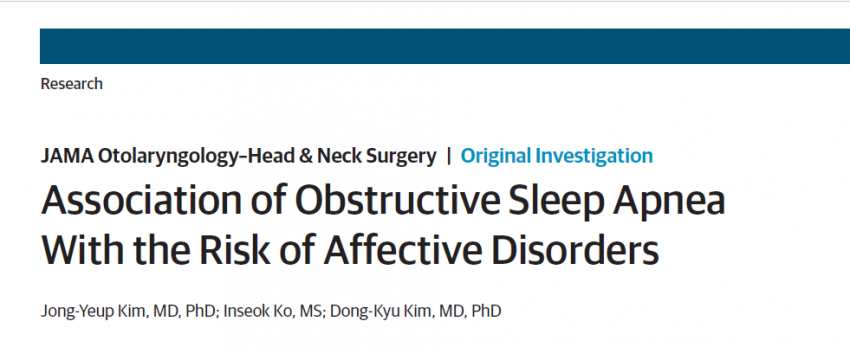This is a Korean study published in JAMA Otolaryngology–Head & Neck Surgery. [1] In a relatively small group of 197 patients with a diagnosis of obstructive sleep apnoea (OSA), the authors found an increased risk to develop an affective disorder in 9 years of follow up.
The adjusted hazard ratios (HRs) for patients with OSA developing affective disorders in patients with OSA during was 2.04 (95%CI, 1.53-2.70). In a subgroup analysis, the adjusted HRs for patients with OSA who developed depressive and anxiety disorders were 2.90 (95%CI, 1.98–4.24) and 1.75 (95%CI, 1.26–2.44), respectively. Moreover, female patients with OSA had a significant likelihood of prospective development of depression and anxiety (adjusted HR for depression, 3.97 [95%CI,1.54-10.19]; adjusted HR for anxiety, 2.42 [95%CI, 1.17-5.02]) compared with male patients with OSA (adjusted HR for depression, 2.74 [95%CI, 1.80-4.17]; adjusted HR for anxiety, 1.64 [95%CI, 1.13-2.39]).
The authors conclude that further studies are needed to confirm the findings and, if validated, then studies are needed to explore the nature of the observed association, including potential causality, between OSA and affective symptoms.
1 Kim J-Y, Ko I, Kim D-K. Association of Obstructive Sleep Apnea With the Risk of Affective Disorders. JAMA Otolaryngol Head Neck Surg Published Online First: 2019. doi:10.1001/jamaoto.2019.2435


